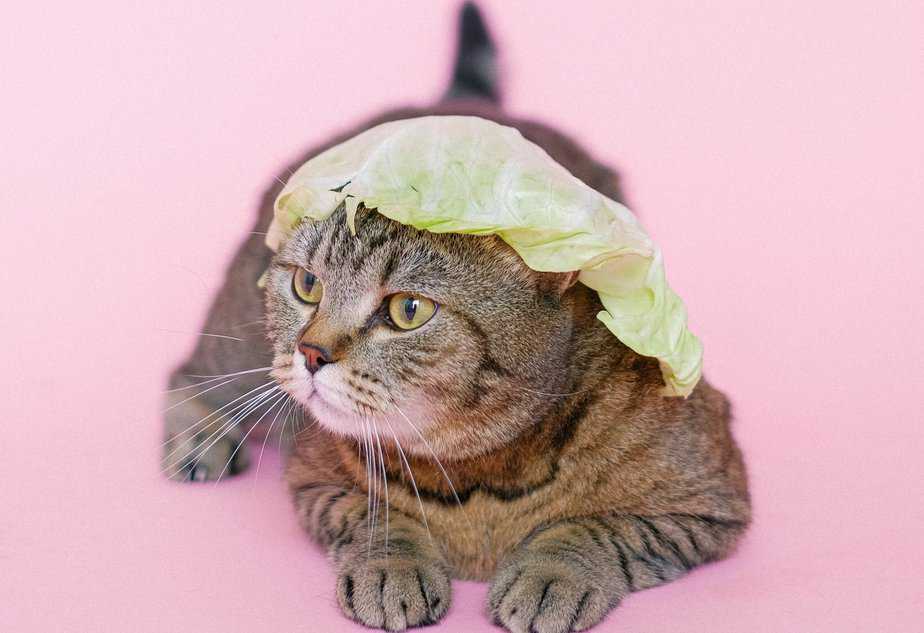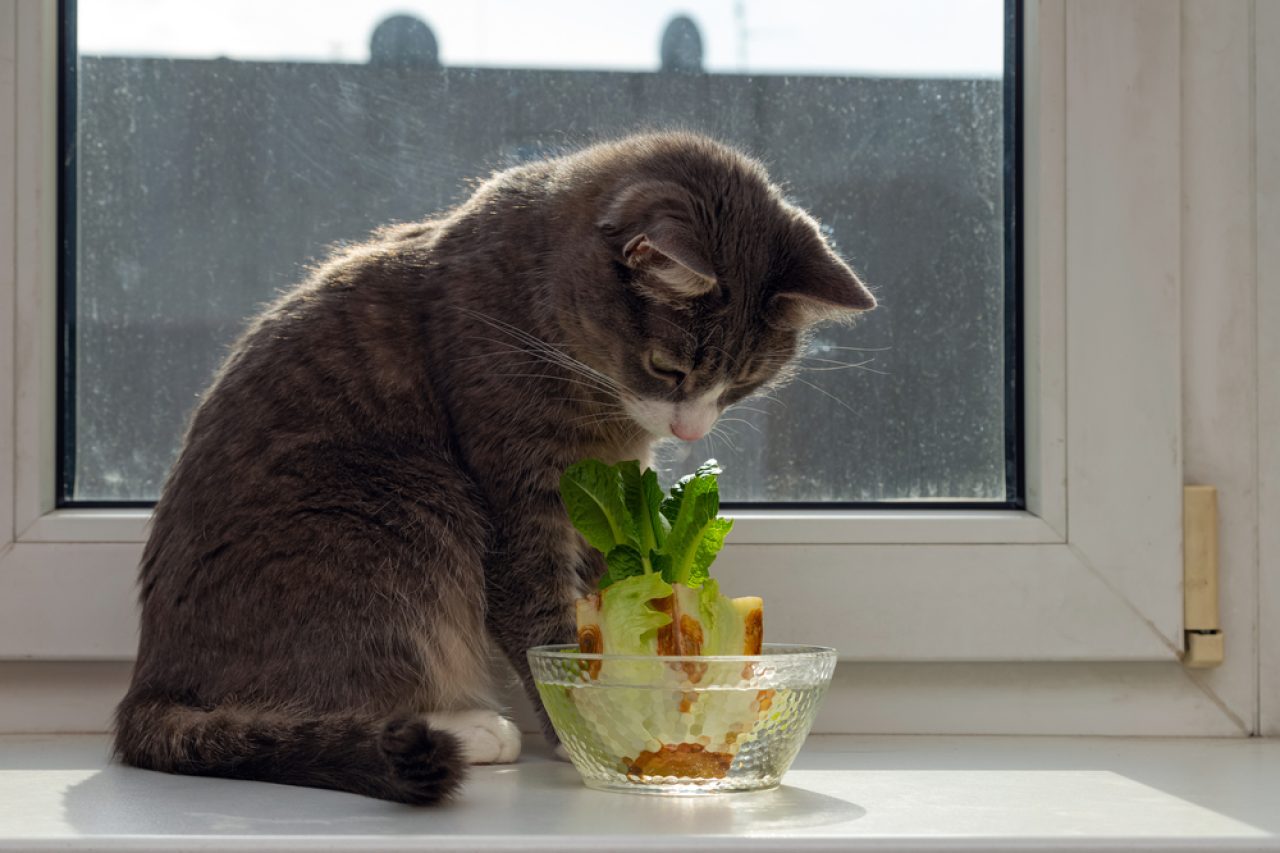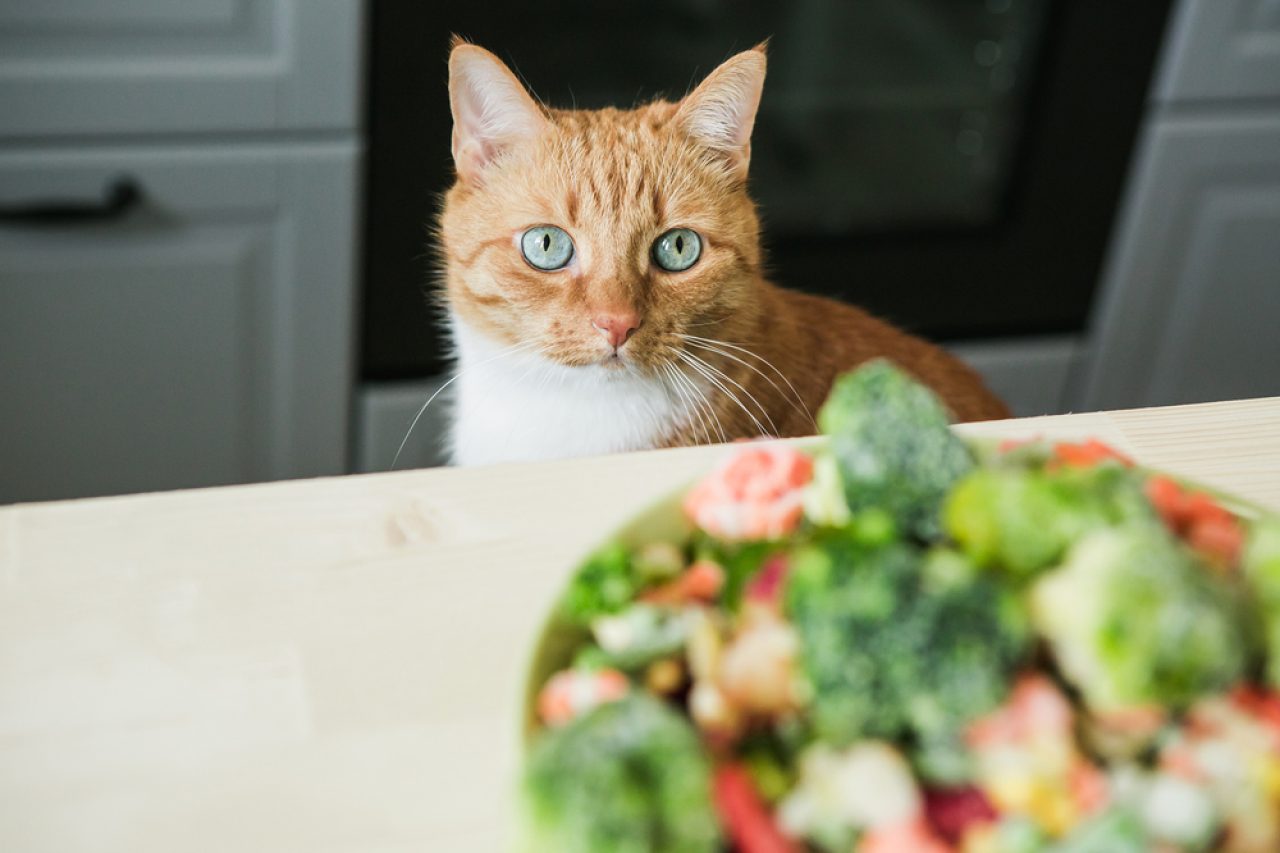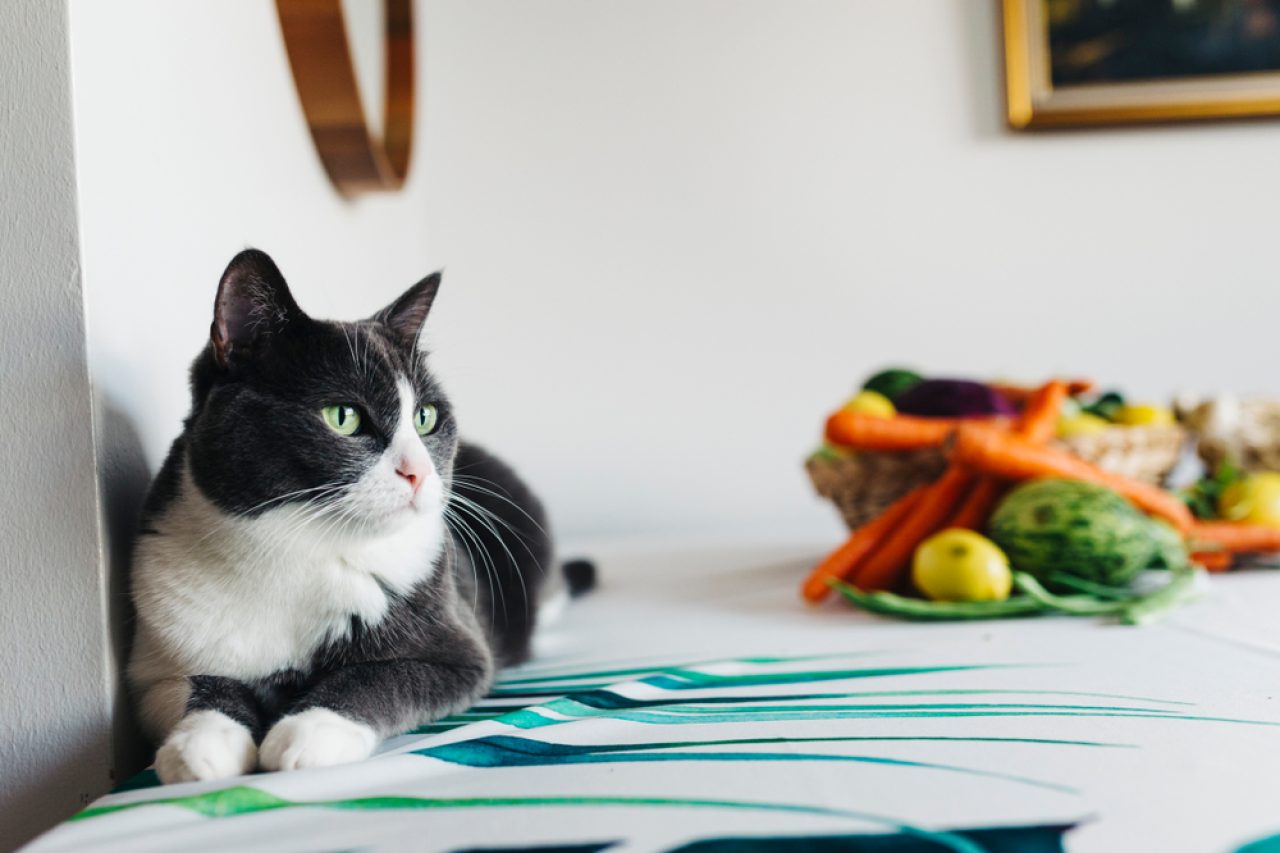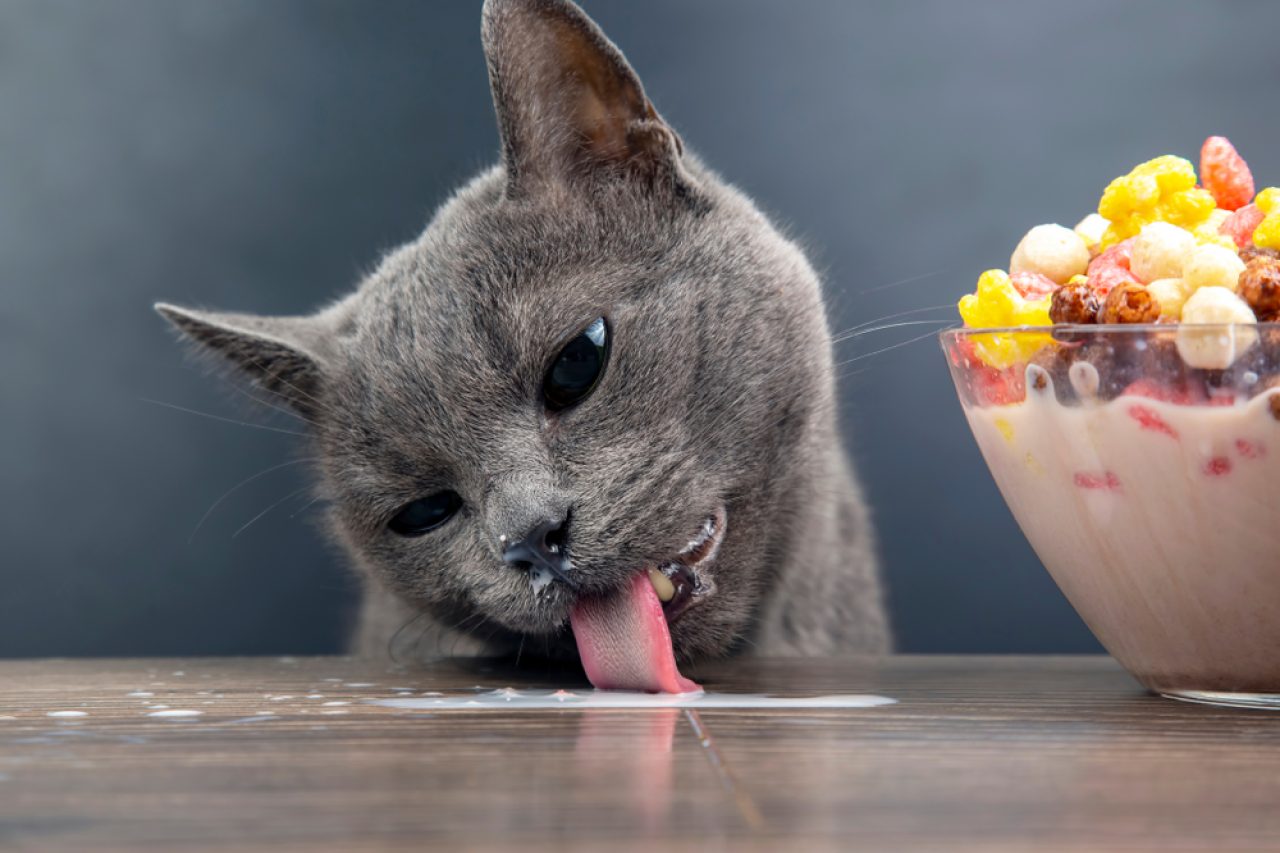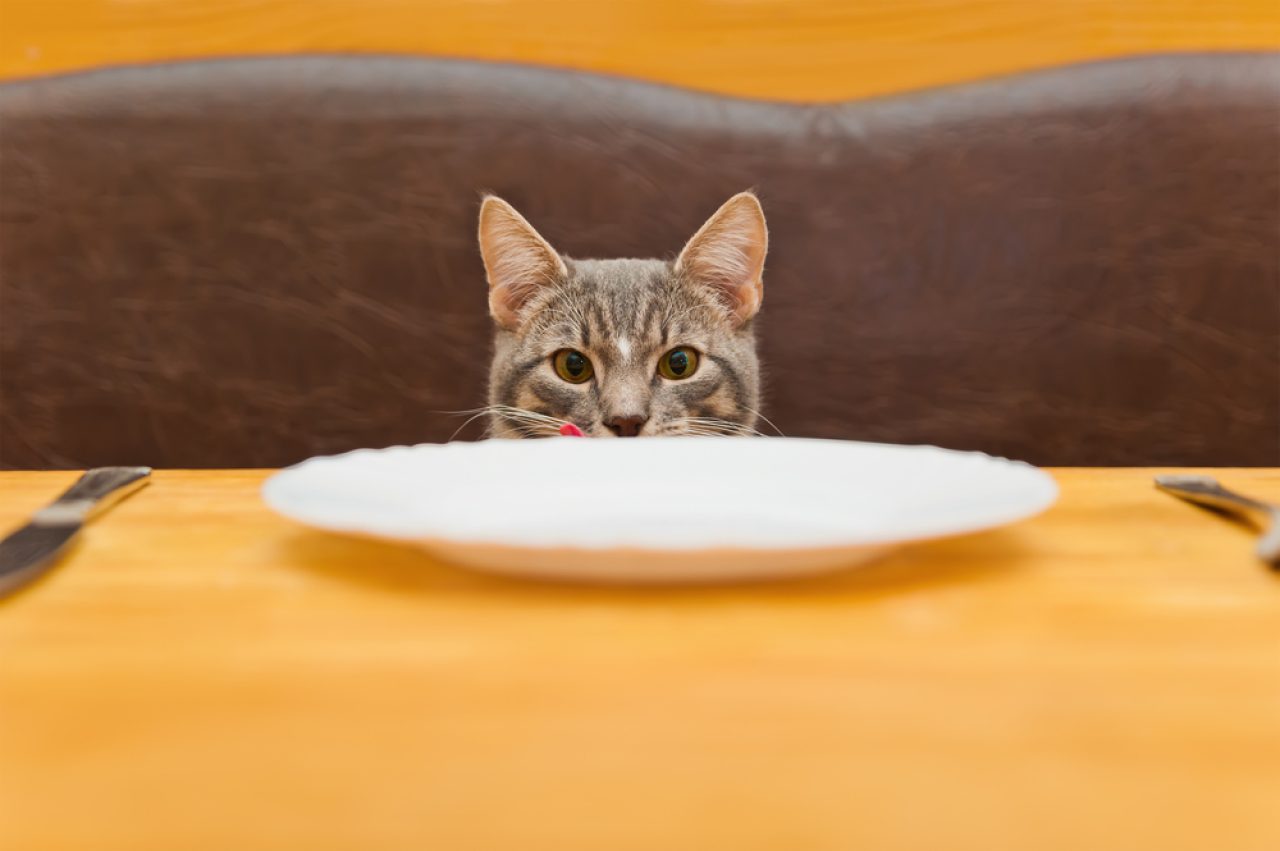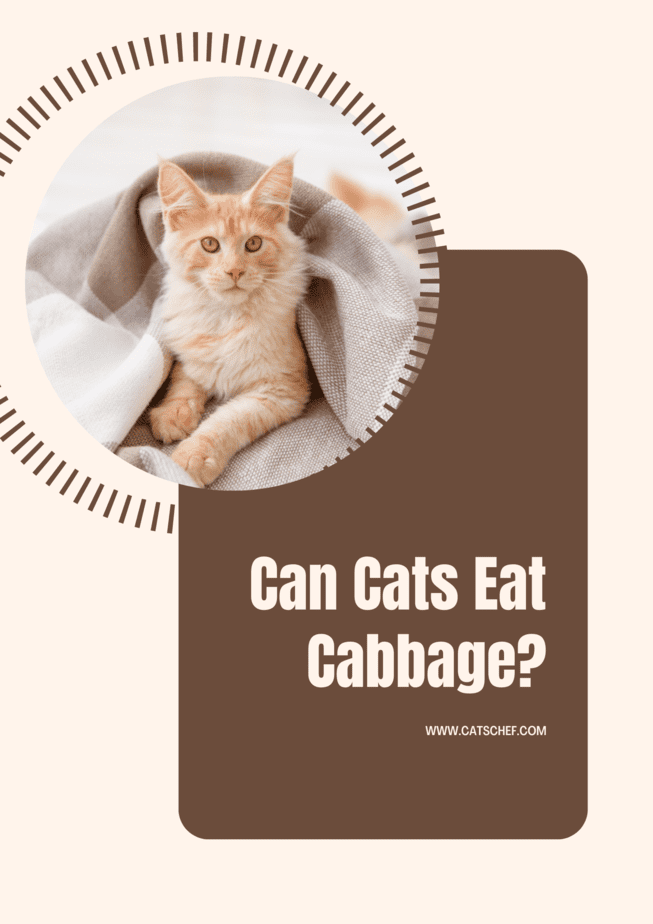📖 Table of Content:
Your curious creature’s a fan of everything you’ve ever had on your plate. She doesn’t care whether we’re talking about a delicious steak or a simple Ratatouille-style veggie spread. She simply loves sharing everything with her favorite human. But, can cats eat cabbage?
She’s gotten chunkier with time, and you’re trying to teach her to eat healthier. She hates that (obviously and unequivocally!) And, every now and then she tries to meow and purr her way into your Sunday barbecue. “Not this time, Mrs. McFluffer!”, you say as you’re scrolling down your TikTok.
“Oh, how the tables have turned! Seems to me like everyone’s raging about grilled cabbage being the better (and healthier) version of steak! Mrs.McFluffer, we’re giving this recipe a try for the sake of your bikini body!”. You scream at your feline friend as you’re preparing your barbecue setup.
But, one thing’s been bothering you the entire time you were looking through those TikToks. Sure, cabbage seems much healthier than a greasy steak that’s been slathered with butter and seasonings (umm, hello, that sounds yummy!) But, can cats eat cabbage?
Our friends over at the APSCA (American Society for the Prevention of Cruelty to Animals) are pretty sure that cabbage doesn’t possess anything that could cause harm to your cat’s health. As long as you stick with a couple of tips and tricks, of course.
Worry not; we’ve gathered everything you need to know about cabbages, cats, and their weird relationship before you draw any of your own conclusions. Here goes nothing – what’s the deal with cats and cabbages?
How do cats feel about cabbage?
Cats can eat cabbage. This seems like great news for someone who’s always snooping around the kitchen. And we know that someone is looking to munch on pretty much anything.
We can’t help but notice your mischievous monster’s been giving your dirty looks ever since you mentioned grilled cabbage and Sunday barbecue.
But, cats are carnivores. On the off chance that you’ve been living under a rock ever since you were born, that means that they need a bunch of meat, animal protein, and other animal nutrients in their diets to survive. They don’t need fruits and veggies the same way you do because they’re not omnivores.
They don’t even possess the digestive enzymes necessary to break down and process most foods you eat every single day. For example, a single sip of milk could send your boisterous beast to the emergency animal center because she’s unable to process lactose.
Or, a minuscule cupcake bite could leave her suffering inside of her litter box for the rest of the day. Her digestive system can’t deal with carbohydrates. She’s pretty much condemned to spend the rest of her life feeding off of a Keto diet ONLY.
Having that in mind, your feline friend shouldn’t be interested in something as bland as cabbage. She’s clearly better off munching on her carefully crafted cat food and cat treats. Even throwing a barbecue of her own (with some paw-licking ribs) every now and then.
But, cats are curious creatures. Haven’t you ever heard the one that goes something along the lines of “curiosity killed the cat?” We’re hoping that doesn’t happen to your munchkin. But, she can be pretty curious when she catches a glimpse of something you’re eating. Even when it’s JUST cabbage.
Can cats eat cabbage?
You and your furry friend are about to head off to the nearest Trader Joe’s to purchase an entire head of cabbage. But, you’re having some second thoughts. Can cats eat cabbage without the repercussions? Can they reap any of the benefits cabbage brings to the table? Are cabbages even vegetables?
Worry not; we have the answers you’re looking for. Cabbage actually belongs to the same family as cauliflower and broccoli (hence the VERY similar flavor and aroma). Cabbage typically gets described as a crunchy, cruciferous vegetable even though some humans want to place it in the same basket as spinach and lettuce.
And, we can’t forget about the fact that cabbage became one of the most versatile veggies around the world. Humans prepare cabbage with sweet, savory, and spicy dishes because there are SO MANY different types of cabbage (at least 400 varieties?!)
Green cabbage, Red cabbage, Chinese cabbage, Savoy cabbage, Bok choy… We could go on and on because every single cabbage has a story (and flavor) on its own. And, every type of cabbage contains a bunch of vitamins, minerals, antioxidants, and fiber which seem like a great addition to your cat’s diet.
Cats can eat cabbage so you can have a little “phew” moment and breathe out! Not only does cabbage NOT contain anything that could harm your cat’s health. But, this wondrous veggie can also boost your cat’s immune system and maintain the proper function of other systems.
What’s poppin’ about feeding cabbage to your cat?
Who’s surprised that these crunchy, cruciferous vegetables possess a bunch of nutritional and health benefits!? Cats can sense these things (at least that’s what we’re thinking). So, we’re not surprised that your cat’s been eyeing that Green Goddess (TikTok fans, hi!) salad of yours for a minute.
Who wouldn’t want to boost their immune system, maintain the health of their nervous system, and ensure the proper function of their digestive system? “You know I’ll be the first in line!”. You can almost hear your furry friend meowing and purring your ears off to let her have a taste. Now’s your chance!
1. Vitamins, minerals, and antioxidants
That’s right – cabbage seems to be filled to the brim with vitamins, minerals, and antioxidants. The green goblin of the vegetables can provide you (and your four-legged friend) with vitamin K, vitamin C, vitamin B, folate, magnesium, manganese, copper, and calcium.
That’s quite a combination, don’t you think? For example, vitamin K helps your cat synthesize the essential proteins within her body. On the other hand, vitamin C gives a boost to her immune system and helps the production of collagen (a very important thingamabob, trust me on that one).
Vitamin B, don’t even get me started on vitamin B! This miracle maker helps your feline friend with pretty much everything – maintains the health of her immune system, nervous system, and digestive system, ensures healthy cognitive function, and makes sure she’s got THE BEST skin and hair in the feline world.
And, we can’t afford to forget about the minerals because each of them has an essential role. From the production of oxygen and elevation of oxygen levels to the production of energy and the maintenance of teeth and bones – these little helpers do that, and more. Cabbage for the president, don’t you agree?
2. Fiber
Cabbage seems to be rich in fiber, too! “What does fiber have to do with anything?!”, you might be thinking to yourself and you wouldn’t be the only one. Most pet parents don’t think fiber plays a major role when we’re talking about maintaining their cat’s health.
But, fiber can actually be even more essential for your cat than the other nutrients she can get from cabbage. Cats NEED fiber because they don’t typically get that from their natural diet (meat, meat, and a little bit more meat).
Wild cats typically get their fiber from the insides of their prey’s stomachs or form an occasional plant they munch on while they eon the stakeout. Your not-so-wild cat gets her fiber from cat food and cat treats that contain a few veggies – carrots, peas, and stuff like that.
Fiber provides bulk to help food move through the digestive tract (because fiber doesn’t actually get digested). That helps maintain the health and the proper function of your cat’s digestive tract, and that also helps deal with digestive problems such as constipation and diarrhea.
“A little bit of cabbage a day keeps the doctor away!”, or something like that. Anyway, your precious purrincess can munch on that Green Goddess salad as long as she doesn’t go overboard (and as long as you haven’t put TOO MUCH dressing).
What’s the problem with feeding cabbage to your cat?
Cats can eat cabbage, but… There always seems to be a but when we’re talking about feeding anything to your cat that shouldn’t be a natural part of her diet. Cats don’t really possess the enzymes necessary to break down and process most foods they shouldn’t eat on a regular. Cabbage seems to be one of those foods.
These crunchy, cruciferous vegetables do bring a lot to the table. But, they can be pretty rough for your feline friend to digest. Bloating, nausea, vomiting, and diarrhea – you can never be sure which one of these symptoms to expect after she munches on a little bit of cabbage.
And don’t even get me started on those gasses! Trust me, you don’t want your feline to fart when you’re someone over or when you’re trying to have a romantic dinner with your significant other. She’s going to blame everything on you without batting an eye. Take a look at what other trickeries and ploys to expect.
1. Low nutritional value
“Wait, what? Didn’t we JUST talk about how cabbage possesses a bunch of vitamins, minerals, and antioxidants?!”. That’s right, cabbage does bring a lot of nutritional and health benefits to the table, for both humans and their curious counterparts. But, these benefits aren’t always what cats need
Cats are carnivores and they need meat, animal protein, and animal nutrients in their diets. When they don’t get enough of those things they become weak, depressed, and contract an array of different diseases. Consuming cabbage every now and then shouldn’t cause such problems, but…
Cats are pretty unpredictable. Your feline friend might become obsessed with cabbage for this reason or the other and start refusing cat food and cat treats. Feeding off of a cabbage-only diet can (and will) cause problems in the long run because she won’t be getting the nutrients that she needs.
2. Herbicides and pesticides
And, of course, we can’t forget about the fact that most humans don’t produce their own cabbage. The cabbage that you get from your local farmer’s market or the nearest Trader Joe’s can contain a bunch of herbicides and pesticides that are proven to be harmful (and even poisonous) to cats.
Goes without saying that consuming these things (accidentally) over a longer period can be detrimental to your cat’s health. Depending on the type of herbicides and pesticides your little munching can experience weakness, twitching, tremors, seizures, and even chronic anorexia.
So, when you’re planning on sharing a tiny bit of cabbage salad with your feline, make sure you wash the cabbage PROPERLY. Don’t shy away from soaking the cabbage – you just need a mixture of water, vinegar, and baking soda. Rinse out the cabbage under cold water afterward, and you’re good to go.
Can cats eat cooked cabbage?
Cats can eat cooked cabbage – as long as you consider a couple of things.
Cooked cabbage does seem to be the best way to go about feeding the delicious vegetable to your four-legged friend. But, that does depend on the way you cook the cabbage. Cabbage that’s been smothered with oil, salt, and seasonings such as garlic powder, onion powder, and chili’s a HUGE red flag.
Your little feline friend can’t have any of those things because they could send her to the emergency animal center. Trust me, you don’t want your feline munching on anything that’s been anywhere near garlic powder or onion powder (toxicity ALERT!).
So, when you’re thinking of sharing a thing of cabbage stew with your favorite feline, make sure you cook everything without the added seasonings. You might think “Wow, that sounds bland!”. But, there are plenty of herbs and seasonings that are safe for your cat (basil, cilantro, dill…).
Can cats eat raw cabbage?
Cats can eat raw cabbage, but that’s not to say that they should. Raw cabbage comes with far more risks than cooked one, and trust me; you’re better off staying on the safe side.
First things first, raw cabbage can become quite a choking hazard. This crunchy, cruciferous vegetable seems to be pretty difficult to chew for your four-legged friend. Especially when you don’t cut the cabbage into small, paw-sized bites.
On the other hand, raw cabbage contains something known as thiocyanate. When your furry friend consumes thiocyanate for a longer period, she starts to lose her ability to regulate her own thyroid. Which is a pretty essential skill to have). And, that can end with hypothyroidism.
Cooking the cabbage destroys A LOT of thiocyanates, which makes cooked cabbage a much safer option for your feline friend. Cats can eat cabbage, but you’re the one who’s responsible for making the cabbage cat-friendly (and delicious, of course!).
